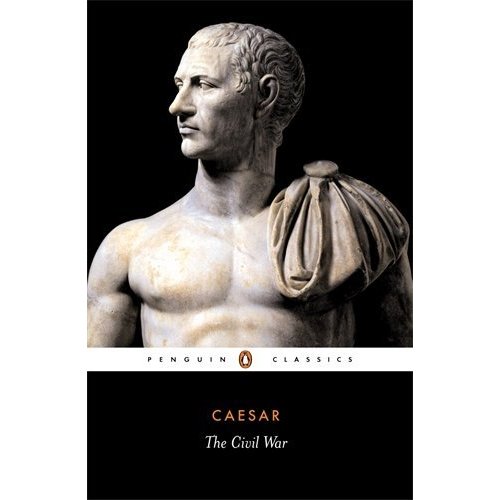|
Commentarii de Bello Civili (Commentaries on the Civil War)
368 Pages Recommended: 5/5 A few weeks ago I reviewed the first of Caesar three books, the War in Gaul. This week I finished Julius Caesar’s second autobiographical second book, the Civil War. Reading these books has completely revolutionized my understanding of Roman history and helped me fully realize the importance of reading primary sources. The book can be a bit challenging to read, but is well worth it. The book is pretty difficult and I had to read it twice to grok it. I had to keep a Wikipedia page open on my laptop to understand many of the references that Caesar made. I also found Caesar’s writing style to be a bit confusing. He writes about himself in the third person, for example saying “Caesar will cross this river today” but uses the first person when describing his campaign “our troops are hungry” Despite these hurdles, the book is well written, and I would go as far as calling it a page-turner. The book covers Caesar’s return from gaul and the civil war which eventually allowed him to become dictator. He doesn't go into detail about the historical background, but writes a lot about the military tactics. Historical Background One of Caesar’s many objectives during the war in Gaul was to secure political support in his bid for Consulship. Caesar’s victories in Gaul had brought him much political clout and popularity, but he still lacked formal political power. The senate feared that when Caesar would return from Gaul, he would become too powerful for them to control. In order to weaken Caesar, the senate ordered him to disband all of his armies. That is when Caesar decided to stage a coup, and cross the Rubicon. The Rubicon separated Rome from the north of Italy and was revered as sacred. Roman law made it illegal to march an army across the river, because it meant Rome could easily be attacked. When Caesar crossed the Rubicon, he was declaring a coup. After an inspiring speech where he recalls all of the glorious victories during the campaign in Gaul, he decided to cross the Rubicon with his army. Legend has it that not a single man decided to stay behind. All of his troops who cross the Rubicon knew that if the coup failed they would all be crucified as enemies of the state. Fearing Caesar, the Senate decided to evacuate the city. They proclaimed all Romans who stayed as enemies of the state. Romans now had to make a choice to either become enemies of the state and side with Caesar or evacuate the city. Romans who chose to side with Caesar became the Populares, and those who sided with the senate become Optimates. They had very different political goals but similar popular rhetoric. Although both factions claimed to support the restoration of the Roman Republic, neither factions were truly democratic. The Optimates were led by the corrupt political establishment, and the Populares by a budding tyrant. The Optimates identified closely with the upper and middle classes, and was a more conservative party. For nearly 450 years, they had held a senatorial majority. Initially, the party was started by Sulla to protect the traditional interests and values of the Roman Republic. They feared kings and dictators, and fought to maintain political decentralization. By the time that Caesar had come into power, the Republican values had merely become pretenses. In practice, the Optimates protected the Patricians and merchants, and feared the rise to power of the military and generals. The Populares favored the cause of the Plebeians and commoners. They supported the grain dole to the poor, redistribution of land, and the expansion of citizenship to non-Romans. The party was strongly supported by the military factions, and was eventually led by Julius Caesar. The civil war had began.
0 Comments
Leave a Reply. |
Thibault SerletMost of my articles are book reviews, but I also write about many other topics. Archives
December 2023
Categories |

 RSS Feed
RSS Feed